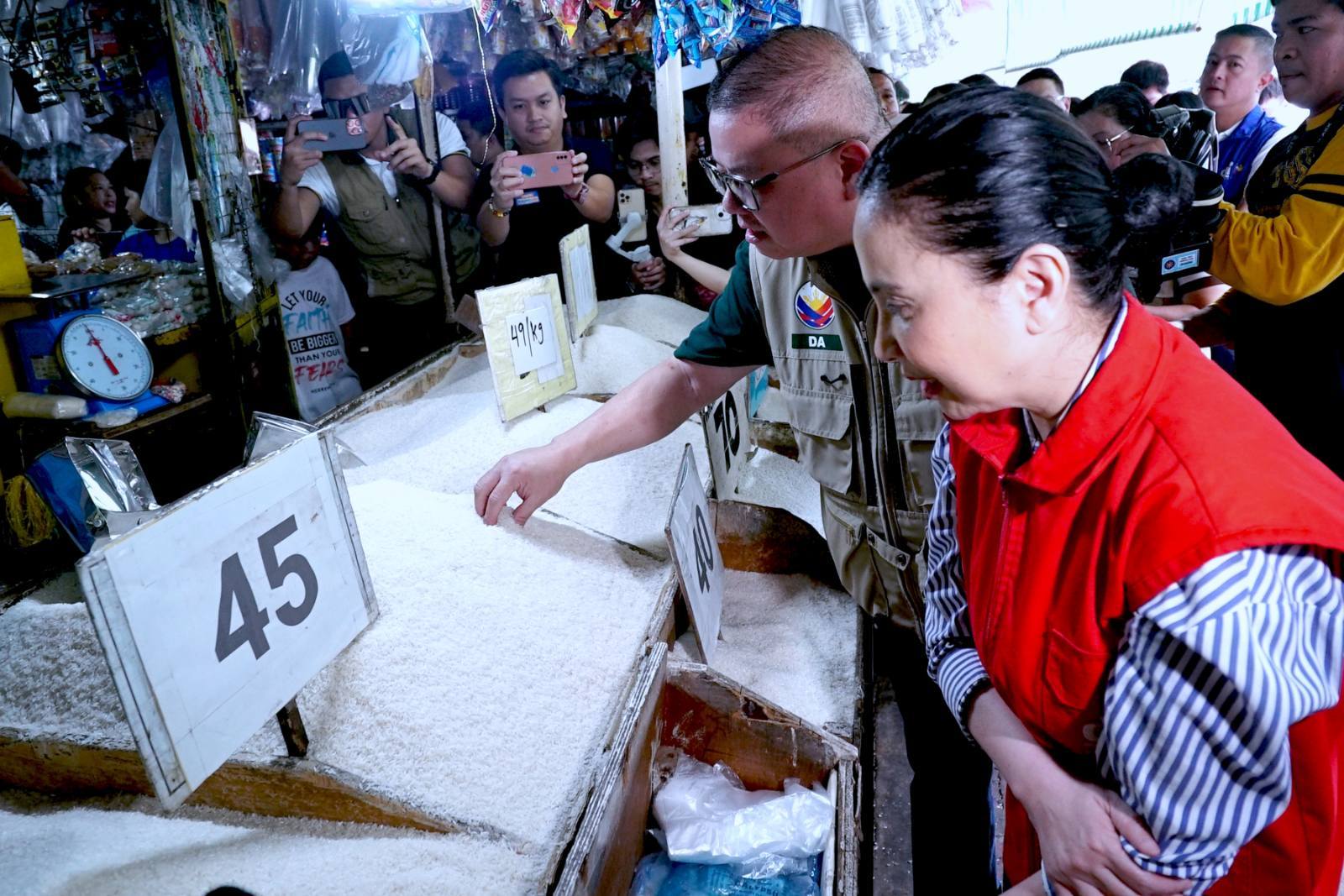
By Kris Crismundo and Filane Mikee Cervantes | Philippine News Agency
Inflation rate in March 2025 settled at 1.8%, marking a nearly five-year low, mainly due to slower price increase in food and non-alcoholic beverages, particularly lower prices of rice.
Philippine Statistics Authority (PSA) Undersecretary Claire Dennis Mapa said in a press briefing Friday that last month’s inflation was lower than the rate in February 2025 at 2.1% and the 3.7% in March 2024.
PSA data showed that the inflation last month was the lowest since June 2020.
The PSA attributed the slower pace of price increases in March 2025 to the easing of food and non-alcoholic beverages inflation at 2.2% from 2.6% a month ago.
Mapa said this commodity group shared 50.2% to the downtrend in inflation.
In particular, cereals and cereal products recorded a deflation, or decrease in prices, of 5.2% last month from a deflation of 3% in February 2025.
This commodity group includes rice, which recorded negative inflation for the past three months: -2.3% in January, -8.4% in February, and -7.7% in March.
Mapa said that since Executive Order (EO) 62 took effect in July 2024, which reduced the tariff on imported rice, prices of the staple have substantially declined.
“Kung i-compare natin noong—say, base natin noong July 2024, kung saan nagsimula ’yong reduction sa tariff—bumaba na rin substantially ’yong presyo ng bigas per kilo,” he said.
Citing PSA data, Mapa said comparing the prices from July 2024 to March 2025, average price reduction for regular milled rice was at P4.90, or from P51.11 per kilo to P46.09 per kilo.
Well milled rice also declined in the same period by P4.19/kg, or from P56.44/kg to P52.25/kg, and by P2.60/kg for special rice, or from P64.75 /kg to P62.15/kg, the National Statistician added.
Aside from food and non-food beverages, inflation in the transport group recorded -1.1% in March 2025 from -0.2% in February 2025.
This sector contributed 27% to the downtrend in inflation in the previous month due to lower prices of gasoline and diesel, as well as slower pace in fare increase in passenger road transport.
Restaurants and accommodation services, with an inflation of 2.3%, shared 16% to the downtrend of inflation last month.
Speaker: PBBM measures paying off as inflation eases
House Speaker Martin Romualdez said President Ferdinand R. Marcos Jr.’s economic interventions to curb food prices are “paying off” after inflation eased to its lowest level in nearly five years.
“This is a welcome development. As I have been saying, this shows that the intervention measures taken by President Ferdinand R. Marcos Jr. and his administration, like the drastic reduction in tariff on rice imports and the setting of maximum retail prices for rice and other food items, are paying off,” Romualdez said in a statement.
“We are happy for our people because slower inflation means less financial burden on their part,” he added.
The Speaker pointed to falling rice prices as the main reason for the easing inflation.
“We are seeing rice prices dropping gradually due to government intervention measures, principally the decision by the President to reduce tariff on imported rice,” he said.
Romualdez said he hopes inflation will continue to fall or stay below 2%, but warned that the rainy season could put upward pressure on food costs.
He said the House of Representatives would continue to support anti-inflation efforts through legislation and oversight.
House Committee on Ways and Means chair and Albay 2nd District Rep. Joey Salceda also welcomed the latest inflation data, particularly the 7.7% year-on-year decline in rice prices.
“As expected, inflation continues to slow down as the price pressures present last year on rice and other key commodities are no longer as heated,” he said.
Salceda, however, warned of rising meat prices, which jumped by 8.2% in March.
“We must remain vigilant about the prices of meat, which is, in larger part, determined by the price of corn,” Salceda said.
Salceda said lower corn prices could eventually lead to reduced meat and fish prices in the coming months, but the current spike in meat costs is still “cause for some concern.”
